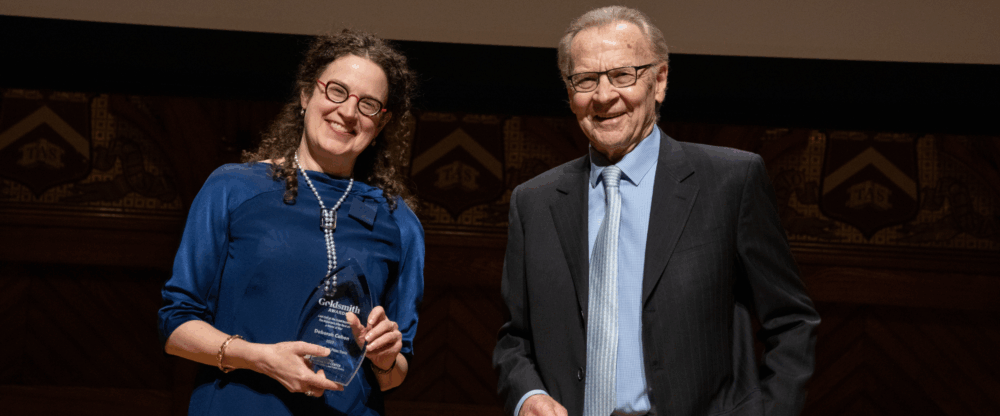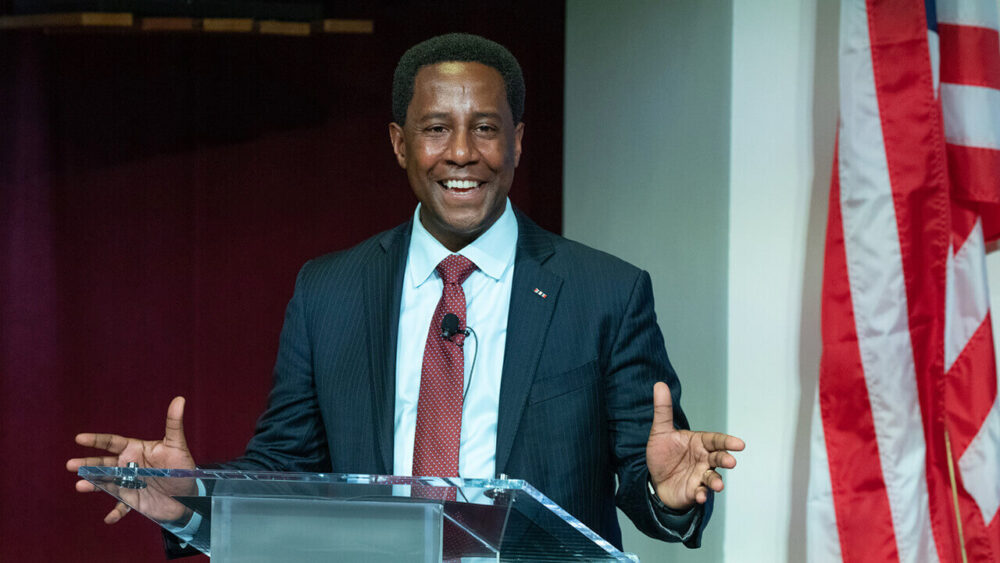March 5, 2015 — Job creation has been a priority of the Obama administration — the U.S. has seen over 10 million jobs created since President Obama took office. To aid these largely private sector efforts, the administration has worked to make federal job training programs that serve over 21 million Americans every year better able to train and match Americans into good jobs that employers need to fill. And in 2014, Vice President Biden convened the innovation community to explore creative uses of labor market information — and led a brainstorming session (“data jam”) to explore ideas for new tools for American workers.
Building on the Vice President’s efforts, last week here at Harvard we hosted a roundtable discussion with a team of public servants, data scientists, entrepreneurs, and academics to explore how data innovation can improve matchmaking between American employers, job seekers, and training programs.
The group discussed three primary ideas, and is eager to explore them further:
- Making job postings easier to find: In 2011, the major search engines endorsed a Job Posting schema to simplify how to discover an employer’s veteran hiring commitment. Today, over 30,000 sites have voluntarily adopted the schema, including many job boards, resulting in greater job posting transparency. During our discussion, we surfaced an idea to 1) update the “tagging” standard to better organize how employers communicate skills data (with debate about should it remain free text, should there be other, more structured fields for industry certification requirements, etc.), and 2) better propagate the standard’s adoption and use.
- Piloting an open database about job types and skills: In the public sector, O*NET is the authoritative source of information on U.S. occupations. This database is the basis for no fewer than 33 regulations affecting programs and policies such as worker training, immigration, and veterans employment assistance. But O*NET’s limited scope of less than 1,000 job types and its emphasis on “stable” professions limits its capacity to incorporate dynamic, high growth jobs — like many in the technology sector. (The President’s proposed 2016 budget nearly doubles funding for O*NET, recognizing that billions of dollars in federal programs rely on O*NET as a critical input.) Private sector labor market platforms are building their own taxonomies, often on top of publicly available O*NET data, but without a mechanism for closing feedback loops. During our discussion, we brainstormed the idea of a job and skills data “cooperative” that could be seeded with O*NET data (including its raw survey data), and explored ideas around mechanisms that would incentivize private sector contribution of data.
- Better skills gap program data coordination: Throughout our discussion, we surfaced many examples of public and private sector initiatives to close skills gaps — from the VA’s forthcoming “accelerated learning program” in IT, to Rework America, and the advanced manufacturing programs in Colorado. Though each requires gathering, analyzing, and applying skills data, there isn’t a mechanism to share best practices to lower data-related expenses and increase its use for current or future programs. To address this, we brainstormed a possible “skills data working group” that could build up expertise on how open data, perhaps tied to the two initiatives noted above, could meet a program’s needs.
The session sparked a series of ongoing conversations that continued beyond the roundtable, and a number of participants are working to develop a set of near-term next steps that we hope to share publicly — stay tuned!
We would like to personally thank all of the talented leaders who participated in this important discussion. Roundtable participants included:
- Alex Carstens, Viridis Learning
- Michael Chui, McKinsey Global Institute
- Rosye Cloud, Department of Veterans Affairs
- Lutz Finger, LinkedIn
- Gordon Freedman, National Laboratory for Education Transformation
- Tyrone Grandison, Department of Labor
- Joel Gurin, Center for Open Data Enterprise
- Ethan Gurwitz, Center for American Progress
- Michael Horn, Clayton Christensen Institute
- Kate Kidder, Center for a New American Security
- Chauncy Lennon, J.P. Morgan Chase
- Amanda Poirier, Department of Labor
- Robby Robson, EduWorks
- Alicia Sasser Modestino, Northeastern University
- John Thompson, Department of Veterans Affairs
- Michelle Weise, Clayton Christensen Institute
- David Weinberger, Berkman Center and Shorenstein Center, Harvard University
Aneesh Chopra and Nick Sinai
Walter Shorenstein Media and Democracy Fellows
Shorenstein Center for Media, Politics and Public Policy
Harvard Kennedy School




